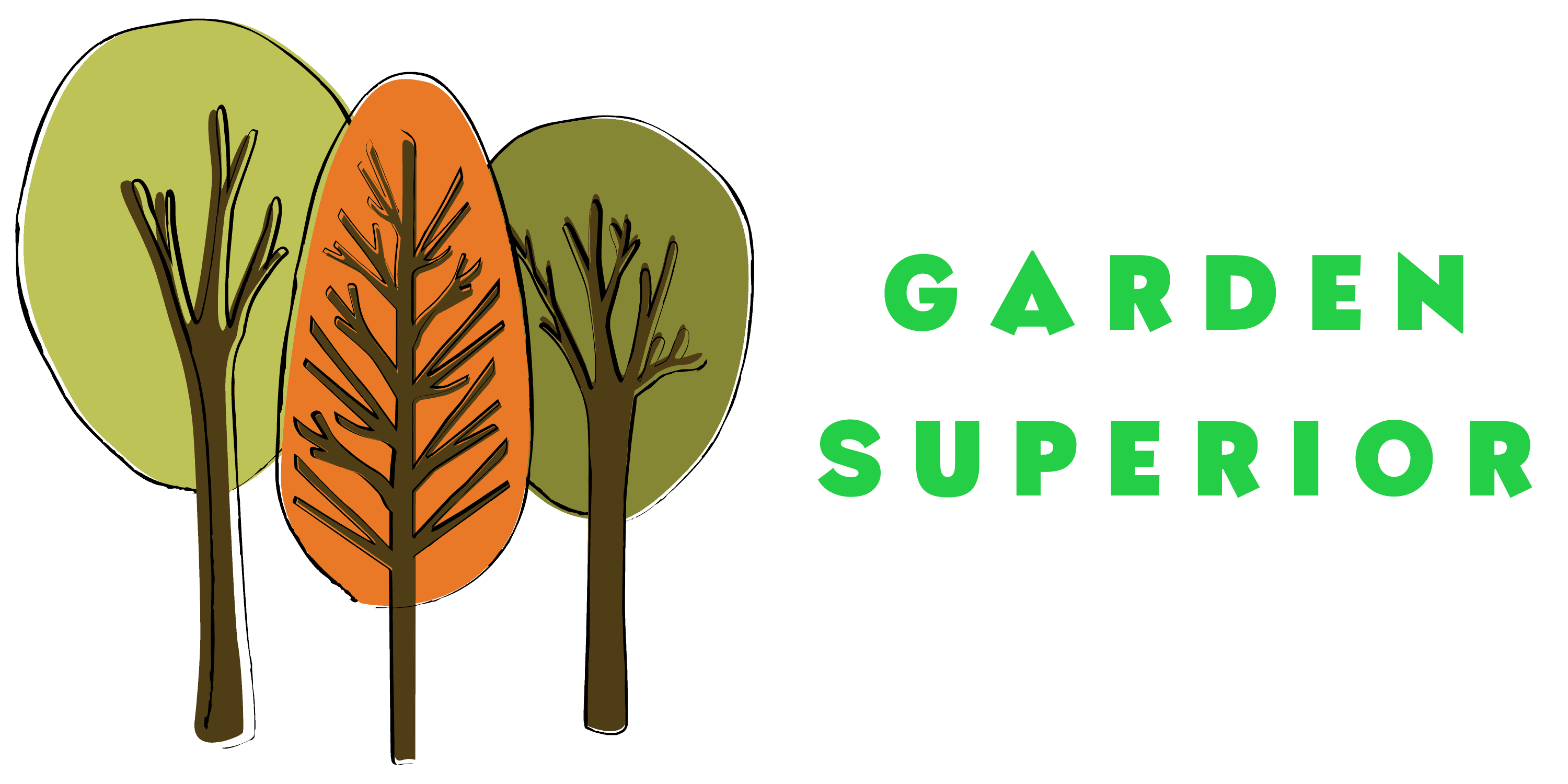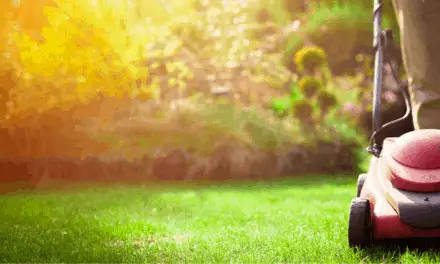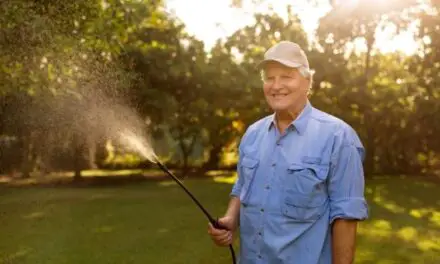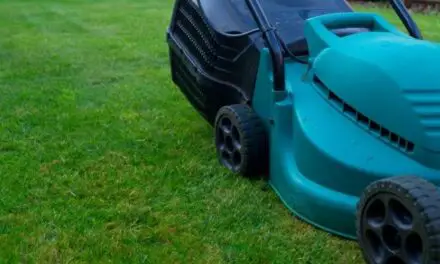Whether you have a grub infestation that you need to get rid of or you just want to wash your car at home, you’ve probably wondered whether or not soapy water is okay for your grass.
Table of Contents
Can I Put Soapy Water On My Lawn?
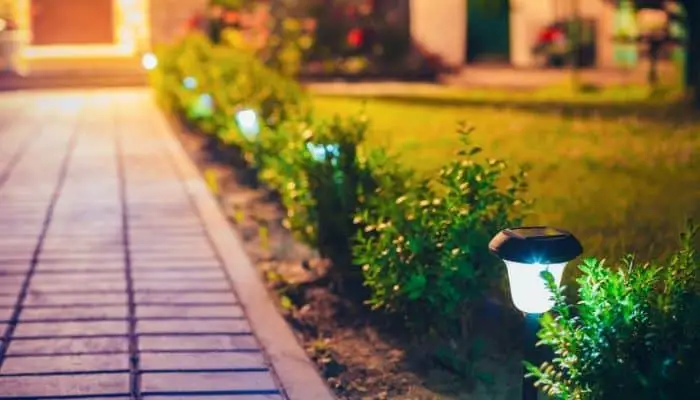
Yes, small amounts of soapy water will not do your lawn any harm but too much of it is not good for your plants or grass.
If it’s just a splash of soapy water going on your grass or you are applying a thin coat of a soapy solution that is highly diluted with water, it won’t do any noticeable or lasting harm to your lawn.
The degreasing agents found in many types of soap will break down a plant’s protective wax and damage your lawn if used in too high a concentration.
It all depends on what kind of soap you’re using and how much of it will be in the water.
Different kinds of soap will have varying effects on your lawn.
In general, though, if you’re going to put soap on your lawn at all, it’s better to use it as a spot cleaner to target specific problems, rather than coating your entire lawn with a soapy water mixture.
This is especially true when it comes to dish soap, a common household item that people often use to make DIY car soap or insecticidal soap.
Dish soap, or more accurately, dishwashing detergent, can actually do a lot more harm than good when used too much on your lawn.
To understand why, you need to know about the differences between soap and detergent.
Related Article: What Is The Point of Grass? (It’s Really Important)
What Is The Difference Between Using Soap And Detergent On Your Lawn?
Soap is typically made by combining natural oils or fats with a base (though commercial soap brands will often add extra ingredients, like colors or scents).
This means that soap is typically biodegradable and not as harmful to the environment.
Detergent, on the other hand, is made using synthetic chemicals and is usually designed to be a little tougher on the things it washes, removing grease and grime.
Is Dish Soap Safe For Your Lawn?
Even though dishwashing soap is commonly referred to as “soap,” it’s actually not a soap at all.
It’s a detergent, designed to cut through wax and grease to make your dishes squeaky clean.
That’s great, of course, for dishes.
When used on plants, however, dish soap can actually dry them out and remove the natural wax and oils that their leaves are coated with.
This leaves the plant even more vulnerable to disease and infestation.
It’s best to avoid using dish soap on your lawn when you can, because even though it’s likely to kill pests, it may also kill the plants if you use too much of it.
However, we understand that not everyone has easy access to safer alternatives like insecticidal soap.
If you need to use dish soap, make sure to heavily dilute it with water, and only spray the spots of a plant that have insects on it, then hose it down later to remove the harmful chemicals.
What Soaps Can Be Used On Your Lawn?
Insecticidal soap is the best choice for use in the garden.
It’s specifically made for horticultural use, which means that it will be gentler on your plants and your grass than any other soap option out there.
If you don’t have access to a premade insecticidal soap, though, and you need to make a DIY version, try to use a soap that’s biodegradable and doesn’t have too many additives or extra chemicals in it.
And make sure to dilute it with water, too!
Related Article: Why Does My Lawn Grow Unevenly? (And What To Do)
Use Soap The Safe Way
Keep in mind that no matter what kind of soap you use, it’s not advisable to use soapy water to spray your entire lawn.
Insecticidal soap may be less harmful to plants, but it can still cause damage when used in large amounts.
If you can, try to use the soap as a spot treatment for problems in your garden or yard.
Spray your soapy water mixture directly on insects that you see on your plants.
The soap will only be effective at killing them if the bugs come into direct contact with it, so targeting them directly is often more effective than spraying the entire plant.
Does Dish Soap Make Grass Green?
When considering something to put on your lawn to make the grass greener, laundry detergent probably isn’t the first thing that springs to mind.
But, a University of Arizona study has shown that leftover water from laundering clothes with detergents that contain phosphates may help to revive your grass and make your lawn greener.
Phosphates are commonly found in fertilizer and applying a laundry detergent solution with this ingredient can help your lawn to regrow areas of brown and dying grass.
The problem is that phosphates are no longer used to make laundry detergents because of a ban passed in 1993 in the United States.
The ban, however, didn’t apply to dishwasher detergents, so you may still find some that contain phosphates.
What Home Remedy Makes Grass Green?
First, find yourself a dishwasher detergent that contains phosphates.
Add roughly 1 gallon of lukewarm water to a bucket.
Add in 1 teaspoon (or one tablespoon of liquid detergent) and gently stir the mixture well until the detergent has completely dissolved.
Fill a sprayer with the solution and spray your whole lawn evenly with one thin layer.
Once you’ve given your entire lawn a light coating, you can spray a little more on areas where there’s dying grass.
Repeat the process approximately once every 6 weeks during summer.
Does Laundry Detergent Kill Lawn Grubs?
A solution of about 1 liquid tablespoon of detergent to 1 gallon of lukewarm water makes an effective lawn grub killer by smothering them.
If you find that you have a grub problem, the best time to treat it is in late summer or early spring when the grubs have just hatched and are eating roots close to the surface.
The same detergent solution from earlier will work well for this.
Final Thoughts
Be very careful about putting any cleaning liquids on your lawn.
Remember that your lawn is a living thing.
There are different chemicals in different products and it can be hard to predict the impact they will have on your grass.
In summary, you can use soapy water on your lawn, but if you want to keep your yard as beautiful and healthy as possible, you should make sure to only use soaps that are safe for use on and around plants.
Plus, even when using these less harmful soaps, you shouldn’t go overboard.
If possible, use them for spot treatments to target specific problems.
I hope that with these tips, you can keep your lawn green and healthy for longer and avoid damaging your plants.
